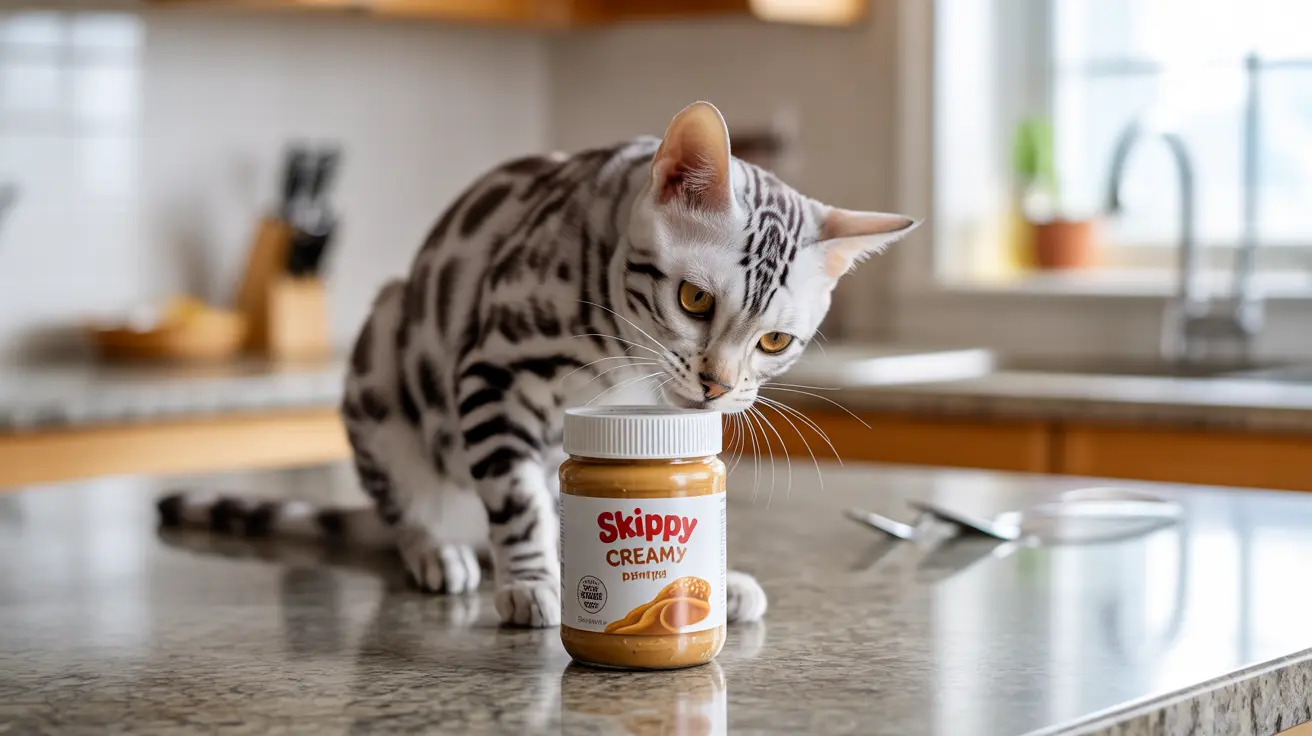Why Cats and Peanut Butter Don't Mix Well
Cats are obligate carnivores, which means their bodies are designed to process and utilize nutrients from animal-based proteins. Unlike humans or dogs, cats have specific dietary requirements that peanut butter simply cannot meet.
Their digestive systems lack certain enzymes needed to properly process plant-based proteins and fats found in peanut butter. This fundamental mismatch between feline nutritional needs and peanut butter's composition makes it an unsuitable food choice.
Health Risks Associated with Peanut Butter
Dangerous Ingredients
Modern peanut butter often contains ingredients that can be harmful to cats:
- Xylitol (artificial sweetener) - extremely toxic to cats
- High sodium content - can lead to salt poisoning
- Added sugars - unnecessary and potentially harmful
- Hydrogenated oils - can contribute to inflammation
Physical Health Concerns
Even natural, additive-free peanut butter poses several risks:
- Choking hazard due to thick, sticky consistency
- High calorie content leading to obesity
- Potential trigger for pancreatitis
- Risk of digestive upset and discomfort
When Peanut Butter Might Be Used
There are rare instances where veterinarians might recommend using a tiny amount of peanut butter:
- Administering medication
- Specific behavioral training scenarios
- Medical testing situations
However, these uses should only occur under professional guidance and with appropriate precautions.
Safe Alternatives to Peanut Butter for Cats
Instead of peanut butter, consider these cat-appropriate treats:
- Commercial cat treats formulated for feline nutrition
- Small pieces of cooked lean meat
- Freeze-dried meat treats
- Cat-specific dental treats
- Special occasion catnip treats
Monitoring Your Cat After Peanut Butter Exposure
If your cat accidentally consumes peanut butter, watch for these symptoms:
- Vomiting or diarrhea
- Lethargy or weakness
- Signs of choking or difficulty breathing
- Excessive thirst or urination
- Unusual behavior changes
Frequently Asked Questions
Is it safe to give my cat peanut butter as a treat?
No, peanut butter is not recommended as a treat for cats. While small amounts of xylitol-free peanut butter aren't usually toxic, it offers no nutritional benefits and poses several health risks to cats.
What are the health risks of feeding peanut butter to cats?
The main risks include choking hazards, potential xylitol poisoning, high fat content leading to obesity or pancreatitis, digestive issues, and excessive sodium intake. The sticky consistency can also be dangerous for cats.
Can peanut butter cause allergic reactions or poisoning in cats?
Yes, cats can experience allergic reactions to peanut butter, and severe poisoning can occur if the peanut butter contains xylitol. Symptoms can range from mild skin irritation to life-threatening conditions requiring immediate veterinary care.
How can I safely use peanut butter if I need to give my cat medicine?
If you must use peanut butter to administer medication, consult your veterinarian first. Use only a tiny amount of xylitol-free, natural peanut butter, and consider veterinarian-recommended alternatives designed specifically for hiding pills.
What are better treat alternatives to peanut butter for cats?
Better alternatives include commercial cat treats, small pieces of cooked lean meat, freeze-dried meat treats, and specially formulated feline dental treats. These options are safer and more appropriate for your cat's nutritional needs.
Remember, when it comes to treating your feline friend, it's always best to stick with options specifically designed for cats. Your veterinarian can recommend appropriate treats that will keep your cat both happy and healthy.






